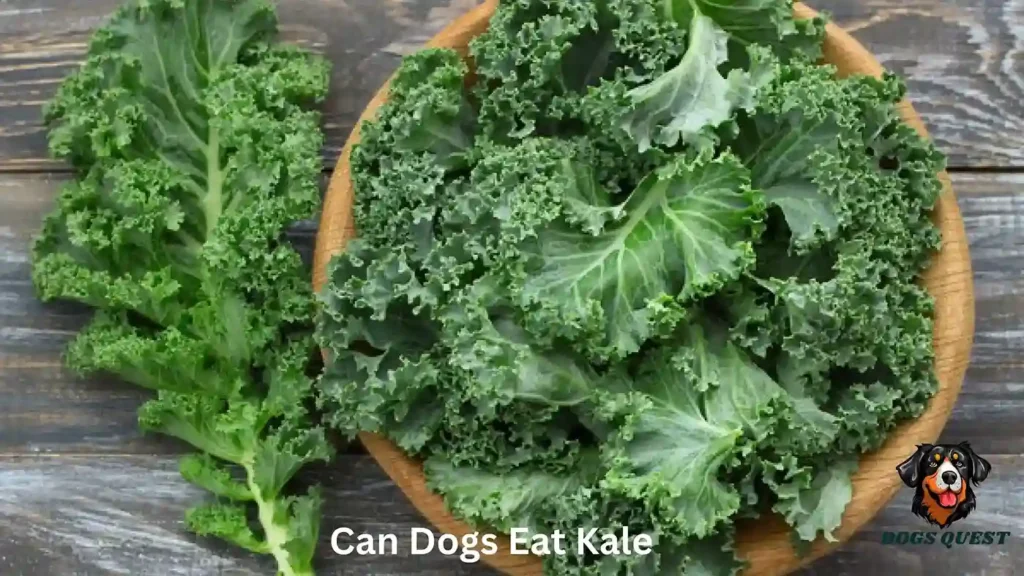Can dogs eat kale safely? Discover 7 surprising facts about feeding kale to dogs, including benefits, risks, and serving tips. Learn how kale fits into a healthy dog diet today.
Introduction
If you’ve ever prepared a salad or smoothie, you probably know kale is one of the most nutrient-dense leafy greens for humans. But pet owners often ask: can dogs eat kale? The simple answer is yes, but with caution. Kale can offer some health benefits to dogs, but it also has potential risks if served in large amounts.
In this comprehensive guide, we’ll explore everything you need to know about can dogs eat kale, including nutritional value, health benefits, possible risks, portion sizes, and safe ways to serve it. By the end, you’ll have a clear understanding of whether kale deserves a spot in your dog’s bowl.
Can Dogs Eat Kale? The Quick Answer

Yes, dogs can eat kale in small, controlled amounts. This leafy green vegetable contains essential vitamins and antioxidants that may support your dog’s immune system, vision, and overall health. However, kale also contains compounds that could be harmful if overfed.
That’s why veterinarians recommend using kale as an occasional treat rather than a regular staple in your dog’s diet.
Why Pet Owners Ask: Can Dogs Eat Kale?
Many dog owners want to add vegetables to their pup’s meals to promote a healthier diet. Since kale is known as a superfood for humans, it’s natural to wonder if the same benefits apply to pets.
The focus keyword can dogs eat kale often comes up in forums, vet consultations, and pet nutrition blogs because owners want reliable answers. And rightly so—understanding the pros and cons is crucial before feeding your dog this green veggie.
Nutritional Value of Kale for Dogs
Kale is packed with nutrients that may support canine health. Here’s what makes it so appealing:
- Vitamin A – Supports eye health and immune function
- Vitamin C – A natural antioxidant that helps fight inflammation
- Vitamin K – Plays a role in bone and heart health
- Calcium – Important for bone strength
- Iron – Supports red blood cell function
- Fiber – Promotes healthy digestion
- Antioxidants – Helps fight free radicals and supports longevity
So, when you ask can dogs eat kale, the nutrient profile makes the answer look promising—but moderation is key.
7 Surprising Facts About Can Dogs Eat Kale

1. Kale Can Support Immunity
Thanks to its vitamin C and antioxidant content, kale can help strengthen your dog’s immune system, keeping illnesses at bay.
2. Kale May Aid Digestion
The fiber in kale promotes healthy bowel movements and can reduce mild constipation in dogs.
3. Too Much Kale Can Cause Problems
Large amounts of kale contain oxalates, which may contribute to kidney or bladder stones in sensitive dogs. This is one reason veterinarians are cautious when asked: can dogs eat kale safely every day?
4. Kale Contains Isothiocyanates
These compounds, while beneficial for humans, may irritate a dog’s stomach, leading to gas or mild digestive upset.
5. Cooking Kale Makes It Safer
Lightly steaming or boiling kale reduces the risk of digestive irritation and helps break down oxalates, making it easier on your dog’s stomach.
6. Portion Control Is Vital
Veterinarians generally recommend kale as a small treat, not more than 10% of your dog’s diet. A few bites of cooked kale once in a while is plenty.
7. Not All Dogs Should Eat Kale
Dogs with kidney issues, bladder stones, or certain medical conditions should avoid kale entirely. Always consult your vet before introducing new foods.
How Much Kale Can Dogs Eat?
When answering can dogs eat kale, portion size makes all the difference. Here are some guidelines:
- Small dogs: 1–2 small bites once a week
- Medium dogs: 2–3 small bites once or twice a week
- Large dogs: Up to ½ cup once a week
Always introduce kale gradually and monitor your dog for any signs of stomach upset.
Risks of Feeding Kale to Dogs

Even though dogs can eat kale, there are risks if it’s not served properly.
Kidney and Bladder Stones
Oxalates in kale can increase the risk of kidney or bladder stones, especially in dogs prone to urinary tract problems.
Digestive Upset
Too much raw kale can cause gas, bloating, or diarrhea due to isothiocyanates.
Thyroid Concerns
Kale is a cruciferous vegetable, meaning it can affect thyroid function if fed in large amounts over time.
This is why moderation and cooking are important when exploring can dogs eat kale safely.
Safe Ways to Serve Kale to Dogs
If you want to give your pup this leafy green, here are the best methods:
- Cook it lightly – Steam or boil kale to make it easier to digest.
- Chop it small – Prevents choking hazards, especially for small breeds.
- Mix with dog food – Add a small amount to their kibble or homemade meals.
- Avoid seasoning – Never add salt, garlic, onions, or oils, as these are toxic to dogs.
Alternatives to Kale for Dogs
If you’re still unsure about can dogs eat kale, you can always offer other safe vegetables:
- Spinach (in moderation)
- Carrots
- Green beans
- Pumpkin
- Zucchini
- Broccoli (small amounts)
These vegetables are generally safer and still provide valuable nutrients.
Final Thoughts: Can Dogs Eat Kale Safely?
So, can dogs eat kale? The answer is yes, but in moderation. Kale can provide valuable nutrients like vitamins A, C, and K, but it also carries risks if overfed. Always cook it lightly, serve in small amounts, and consult your veterinarian before adding it to your dog’s diet—especially if your pet has kidney or thyroid issues.
By keeping servings small and occasional, you can safely share this leafy green with your furry friend while avoiding health problems.
Frequently Asked Questions
Q1: Can dogs eat kale raw?
Yes, but raw kale is harder to digest and more likely to cause stomach upset. Cooking is recommended.
Q2: Can dogs eat kale chips?
No, store-bought kale chips often contain oils, salts, or spices that are harmful to dogs.
Q3: Can puppies eat kale?
Puppies have sensitive stomachs, so it’s best to avoid kale until they are older.
Q4: Can dogs eat kale stems?
Stems are tough and can be a choking hazard. Stick to the leafy parts.
Q5: How often can dogs eat kale?
Once a week in small amounts is typically safe for healthy adult dogs.

